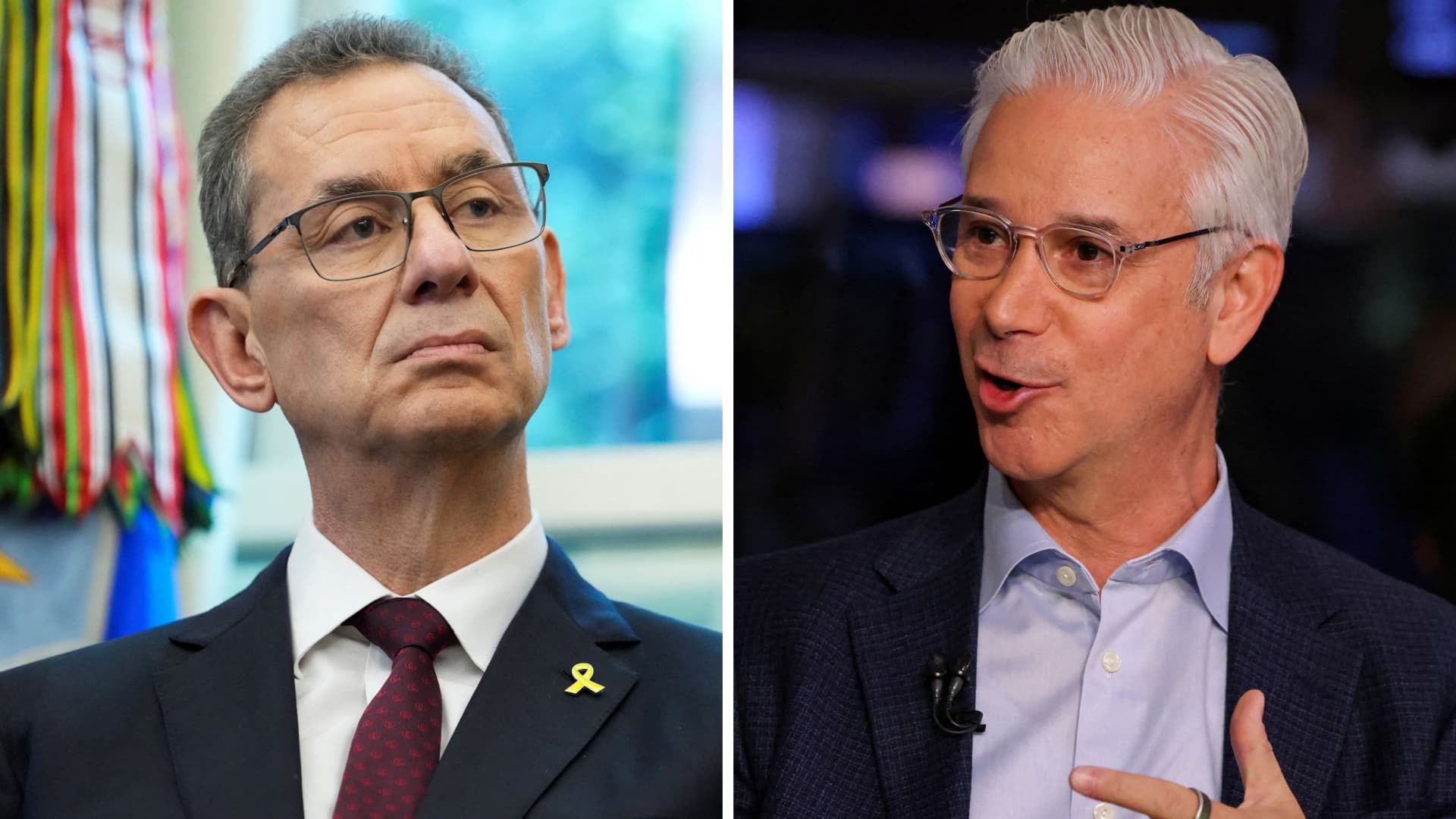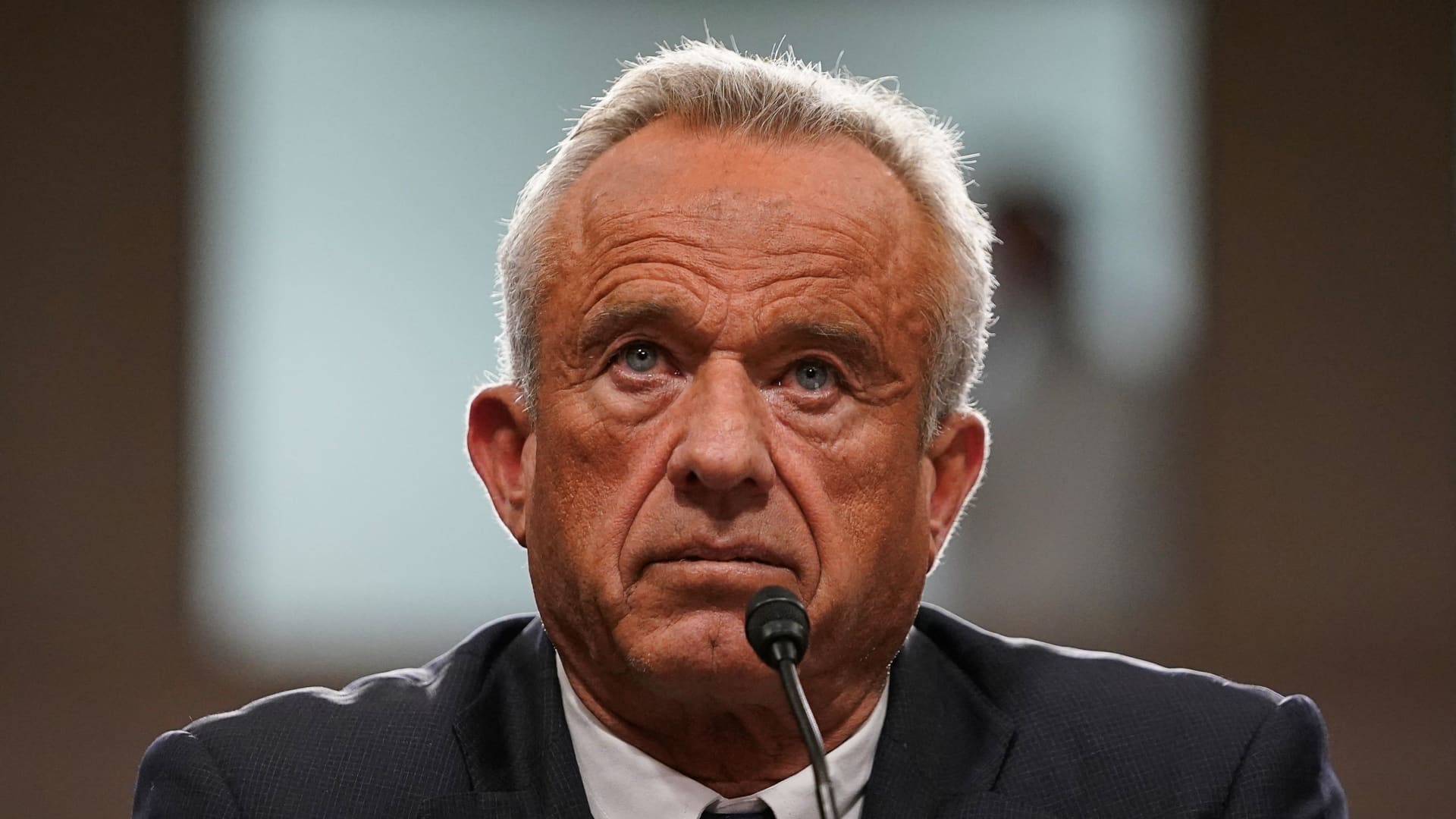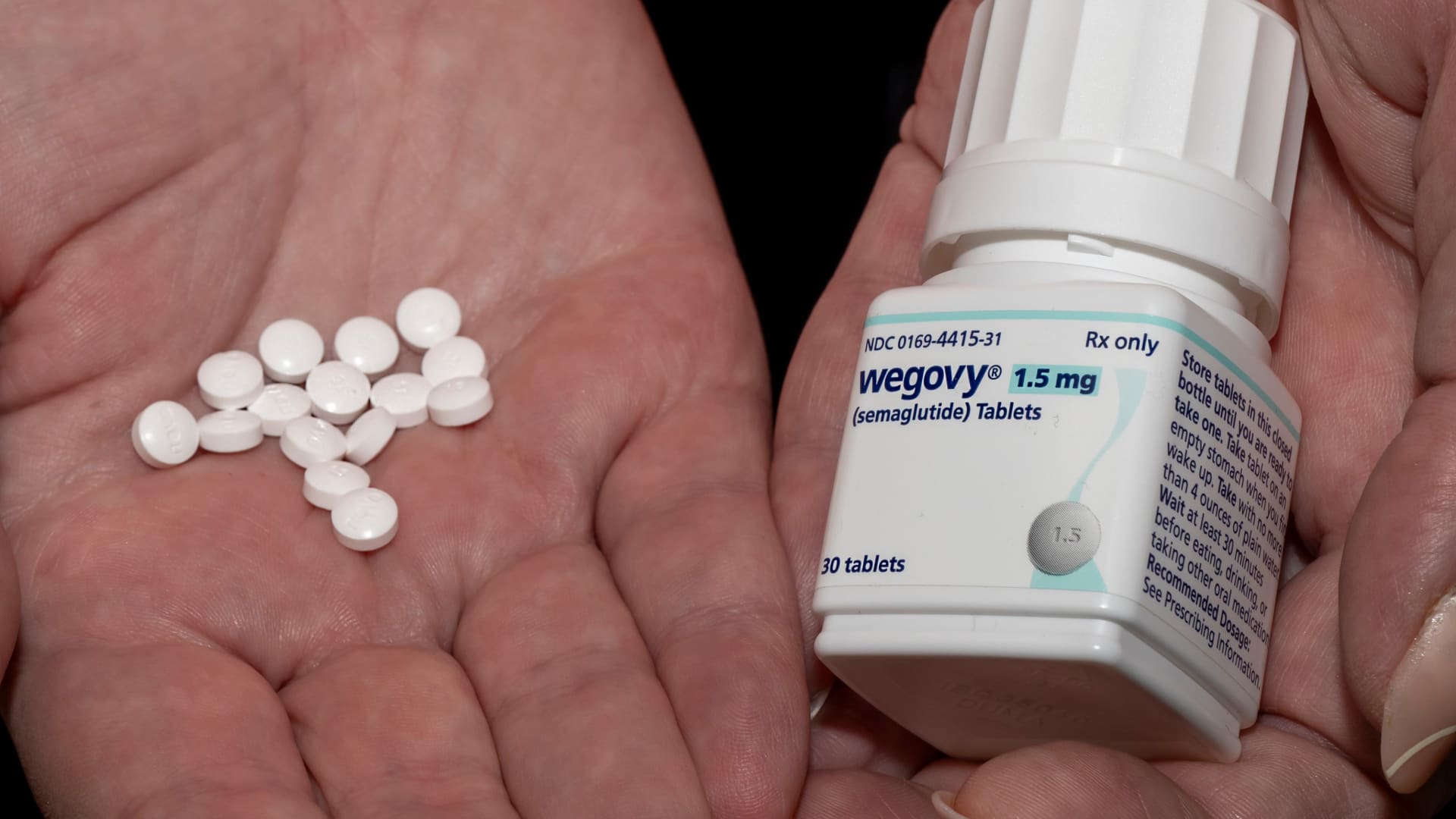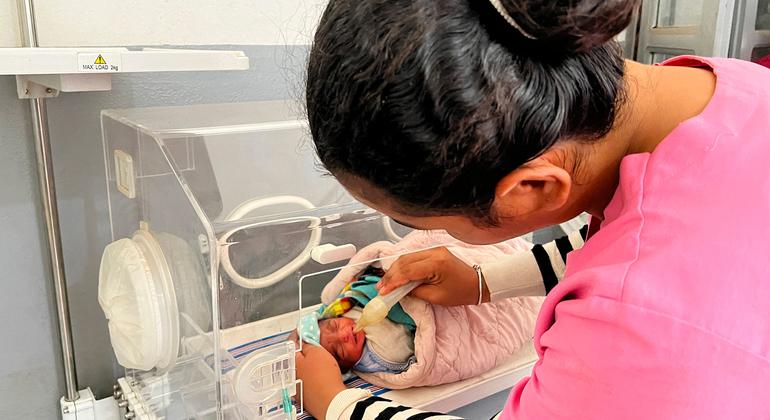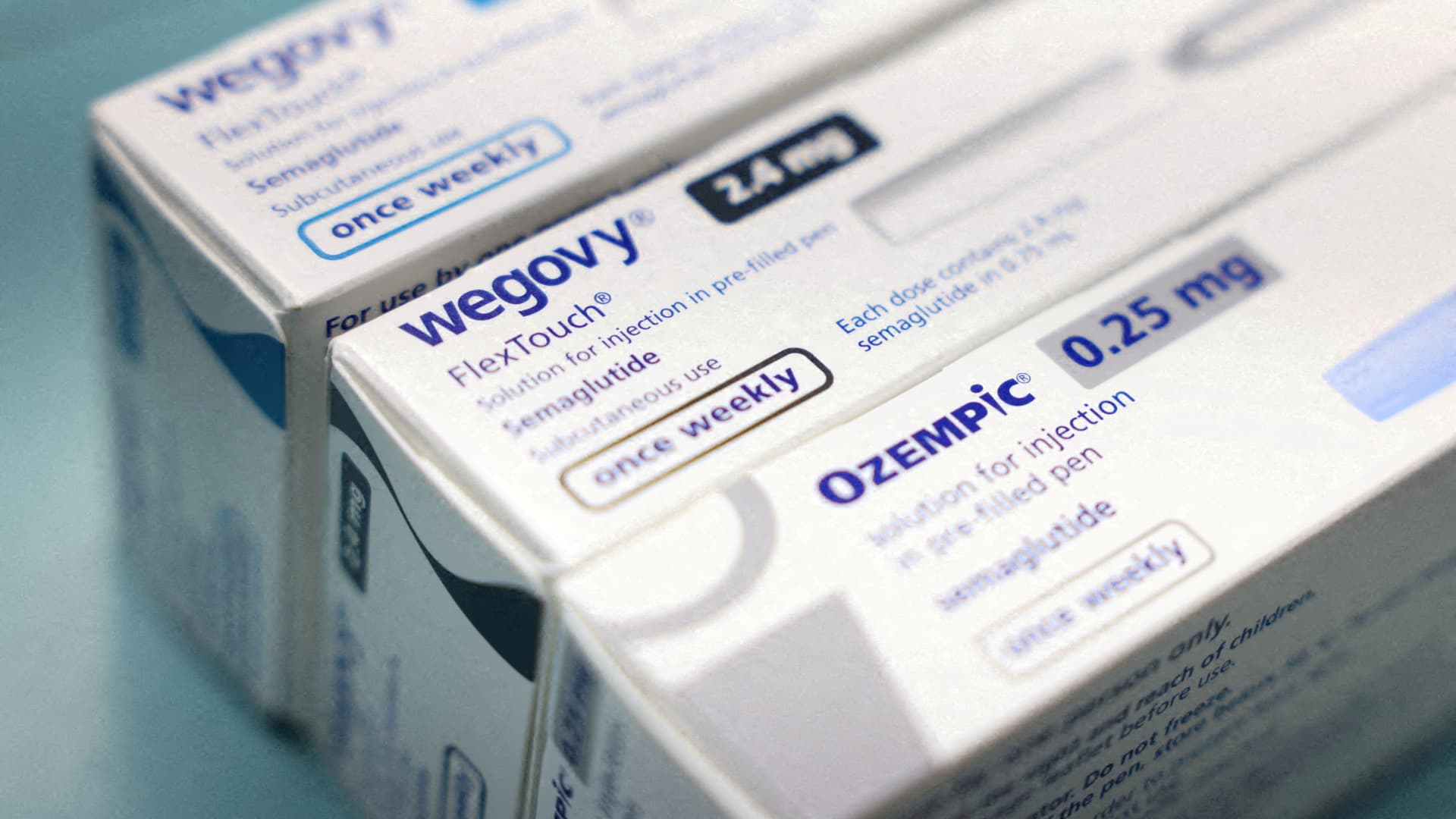Albert Bourla, CEO of Pfizer, Charlie Scharf, CEO of Wells Fargo & Company, and Kathy Warden, president and CEO of Northrop Grumman, speak during the Invest in America Forum on October 15, 2025.
Aaron Clamage | CNBC
Wells Fargo CEO Charlie Scharf and Pfizer Chief Executive Albert Bourla sounded the alarm Wednesday about the possibility of the United States losing its competitive advantage against China, but said artificial intelligence could help the United States maintain its leadership.
Speaking at CNBC's inaugural Invest in America Forum in Washington, D.C., the two executives said that while the United States still leads in many sectors, inconsistent policies and underinvestment are ceding ground to China. AI, they said, poses both risks and benefits to the US economy.
Scharf said AI will likely reduce the size of the workforce, but increase productivity.
“We'll probably have fewer people, absolutely,” Scharf said. “When we look at the tools that we've implemented just for people who code, you see a 20%, 30%, 40% improvement in coders. We haven't reduced our staff by 20%, 30%, 40%. We're actually doing more than we would have been able to do otherwise.”
Wells Fargo's big banks, such as JPMorgan and Goldman Sachs, are already hiring fewer people due to advances in artificial intelligence.
Scharf also said the financial sector is poised for major regulatory changes despite the current political stalemate in Washington.
“Ultimately, we expect significant changes to capital and liquidity requirements,” he said. “We hope to see changes that allow people in the industry, not only the large and medium-sized banks, but also the smaller banks, to do more in these [local] communities.”
Meanwhile, Bourla expressed concern about China's growing strength in biotechnology and pharmaceuticals, pointing to increased spending on research and development, regulatory reforms and a national strategy focused on life sciences.
“They [China] filed more patents this year than the United States,” Bourla said. “That has never happened in history. Five years ago, the split was 90%-10%. …The gap is narrowing, but they will probably become [better than us] unless we act together.”
Bourla urged the United States to stop focusing on slowing China's progress and shift to improving its own productivity and innovation.
“We spend more time trying to think about how to stop China instead of thinking about how we can be better than them,” Bourla said. “We need regulatory changes here. We need to have stability. Tariffs and prices were not helping.”
Pfizer recently agreed to a drug pricing deal with the Trump administration as part of a broader effort to eliminate long-standing uncertainties around pricing, Medicaid reimbursements and distribution. As part of the deal, Pfizer got a three-year exemption from targeted tariffs for pharmaceuticals, contingent on additional investments in U.S. manufacturing.
““Tariffs and the uncertainty of a drastic price correction in the United States: with this agreement, we are eliminating both uncertainties,” Bourla said Wednesday.
He also called artificial intelligence the next frontier of medicine and predicted that AI will revolutionize drug discovery by dramatically accelerating the timelines for finding treatments for diseases like Alzheimer's and cancer.
“For years we have been trying to find cures… AI will make it possible,” Bourla said.

